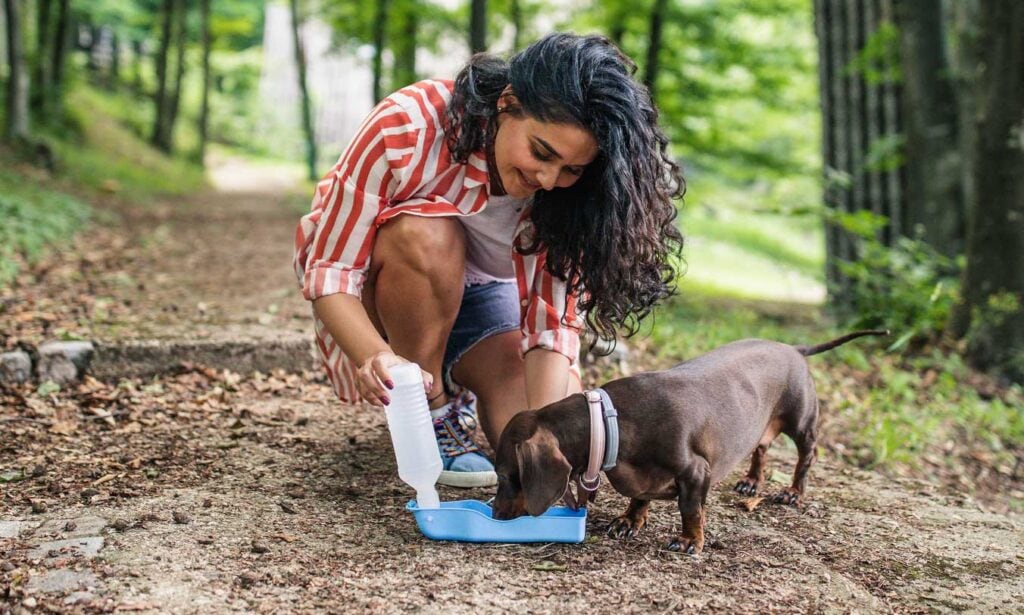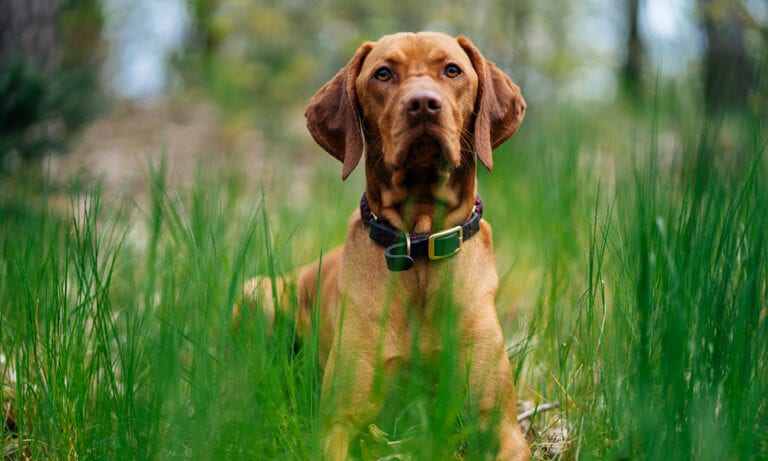Keeping both your pup and yourself hydrated is important 365 days a year, but it’s especially key during the sweltering summer months when you’re heading out on daily walks in hot weather and strong sunshine. While summertime brings tons of outdoor fun, pet parents should be aware of the dangers and symptoms of dehydration in dogs—because it can be life-threatening.
We spoke with vet experts to break down everything you need to know about the signs of dehydration in dogs, what to do if your dog becomes dehydrated and how to prevent dehydration.
Click to jump to each section:
What Is Dog Dehydration?
In the most basic terms, dehydration occurs when the body doesn’t have as much water as it needs, explains Dr. David Israel, DVM, Medical Director at Veterinary Emergency Group in Boulder, Colorado.
As is the case with all mammals, your dog needs water to live. If they’re not getting enough fluids, they can become dehydrated.
Dogs lose water through breathing (especially panting), urinating and defecating, Dr. Israel says. These are all normal processes, but dehydration becomes an issue when your dog’s water intake is lower than their fluid loss.
The Signs of Dehydration in Dogs
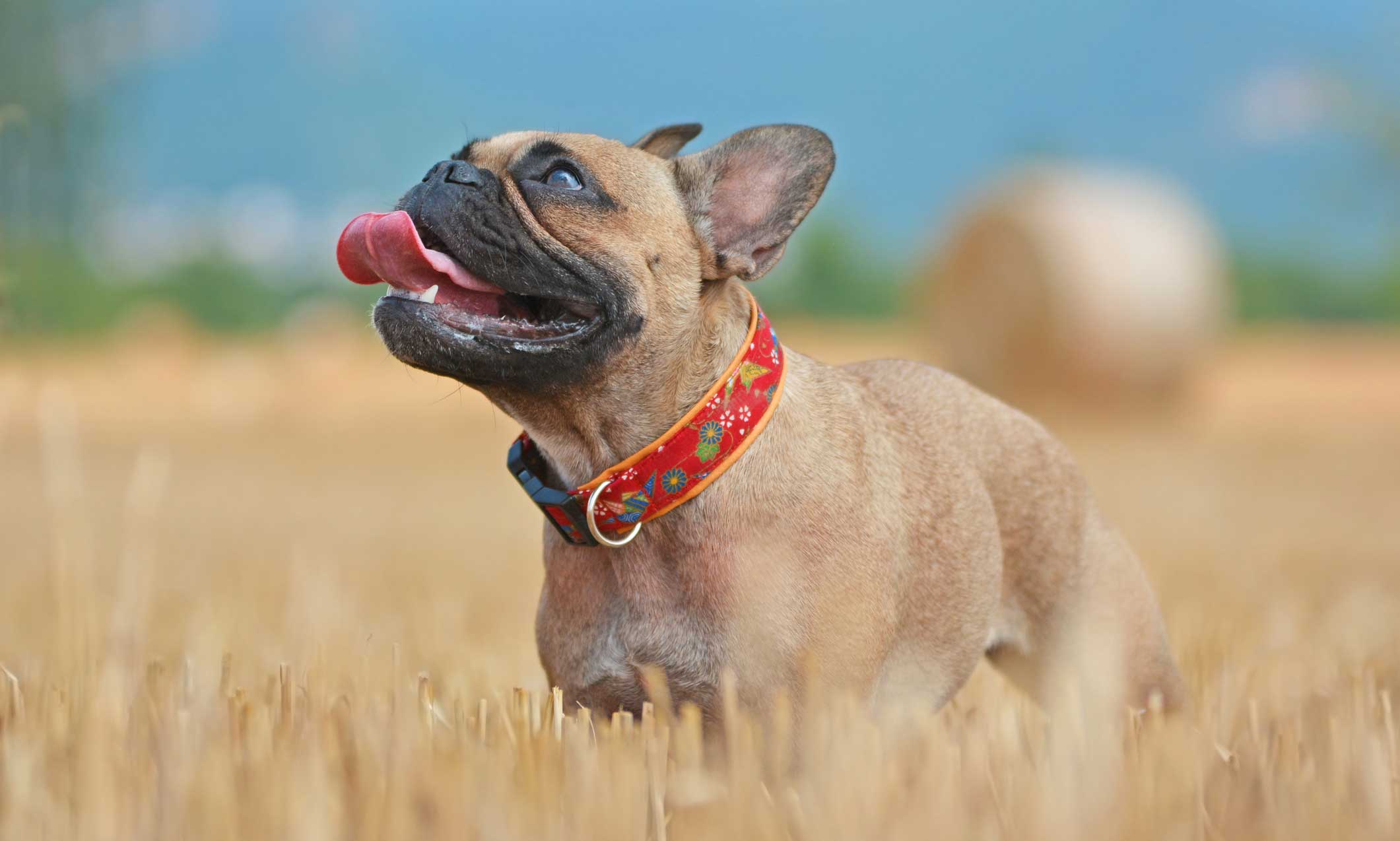
It’s generally easy for pet parents to know when we’re thirsty but recognizing that our dogs are feeling dehydrated requires paying a bit more attention to a dog’s body and behavior—and specifically looking for common signs of dehydration.
Here are some of the easier-to-spot symptoms of dehydration in dogs, according to Dr. Albert Ahn, DVM, a strategic advisor for MYOS, a senior pet healthcare company in Cedar Knolls, New Jersey:
- Panting: Panting more than normal can be a sign of dehydration. Rapid breathing or excessive panting in dogs is a sign of possible heatstroke.
- Lethargy: If you notice your dog is low on energy, next look at their eyes.
- Sunken eyes: The presence of sunken eyes when your dog is also lethargic can be a warning sign they’re dehydrated.
- Loss of appetite
- Dry nose: Consider this in conjunction with excessive panting, especially if your dog isn’t engaging in strenuous physical exercise. A dry nose and excessive panting occurring together can point to dehydration.
- Thick saliva: Normal saliva in dogs should be thin and watery.
- Tacky gums: Your dog’s gums should be slippery and wet when they’re well-hydrated. The gums can become tacky when a dog is dehydrated.
- GI upset, such as diarrhea, constipation or vomiting.
The Skin Tent Test
You can check your dog’s skin to help determine the presence of dehydration. Dr. Israel says that loss of skin elasticity—along with some of the above signs of dehydration—can be a symptom of dog dehydration.
Why? “Well-hydrated animals normally have elastic skin, so when one pulls up on their skin, it snaps back down quickly,” Dr. Israel explains.
A word of caution: “This test must be interpreted along with other symptoms,” Dr. Israel says. For example, “older animals tend to have less elasticity to their skin than younger animals.” So, if you have a senior dog who isn’t showing any other signs of dehydration, you probably don’t need to worry.
“But if an animal is lethargic, has been losing fluids or not intaking fluids and has dry gums and skin tent, then they are probably dehydrated," he concludes.
The Causes of Dehydration in Dogs
There are many causes of dehydration in dogs, “but generally dehydration occurs when fluid losses exceed fluid intake,” Dr. Israel explains.
He notes that excessive loss of fluid and therefore dehydration can occur because of the following issues:
- Vomiting
- Diarrhea
- An underlying health condition, such as kidney disease or diabetes, that causes an excessive loss of urine
- Overheating and excessive panting to cool down
Why Dehydration in Dogs Is So Dangerous
All mammals require water to survive. Our bodies need water for many functions, including maintaining body temperature, protecting the spinal cord and performing waste removal. Our canine companions have similar needs.
If your dog isn’t getting enough water, many things can go wrong. Dr. Ahn explains the parts of the body that can sustain damage due to lack of water:
- Kidneys: Several systems in the body require water to function properly, and the kidneys are among the most important. They can become damaged if your dog remains dehydrated for a prolonged period.
- Heart: Without enough water, the heart must work harder to circulate blood.
- Digestive system: To properly digest food, the digestive system requires water. If your dog isn’t getting the right amount, they can become constipated to an extent that requires veterinary care.
- Internal organs: In the most extreme cases, dehydration can be life-threatening because it can lead to organ failure and even death.
Knowing all of this is good motivation to hop up and check your pup’s water bowl!
What To Do if Your Dog Is Dehydrated
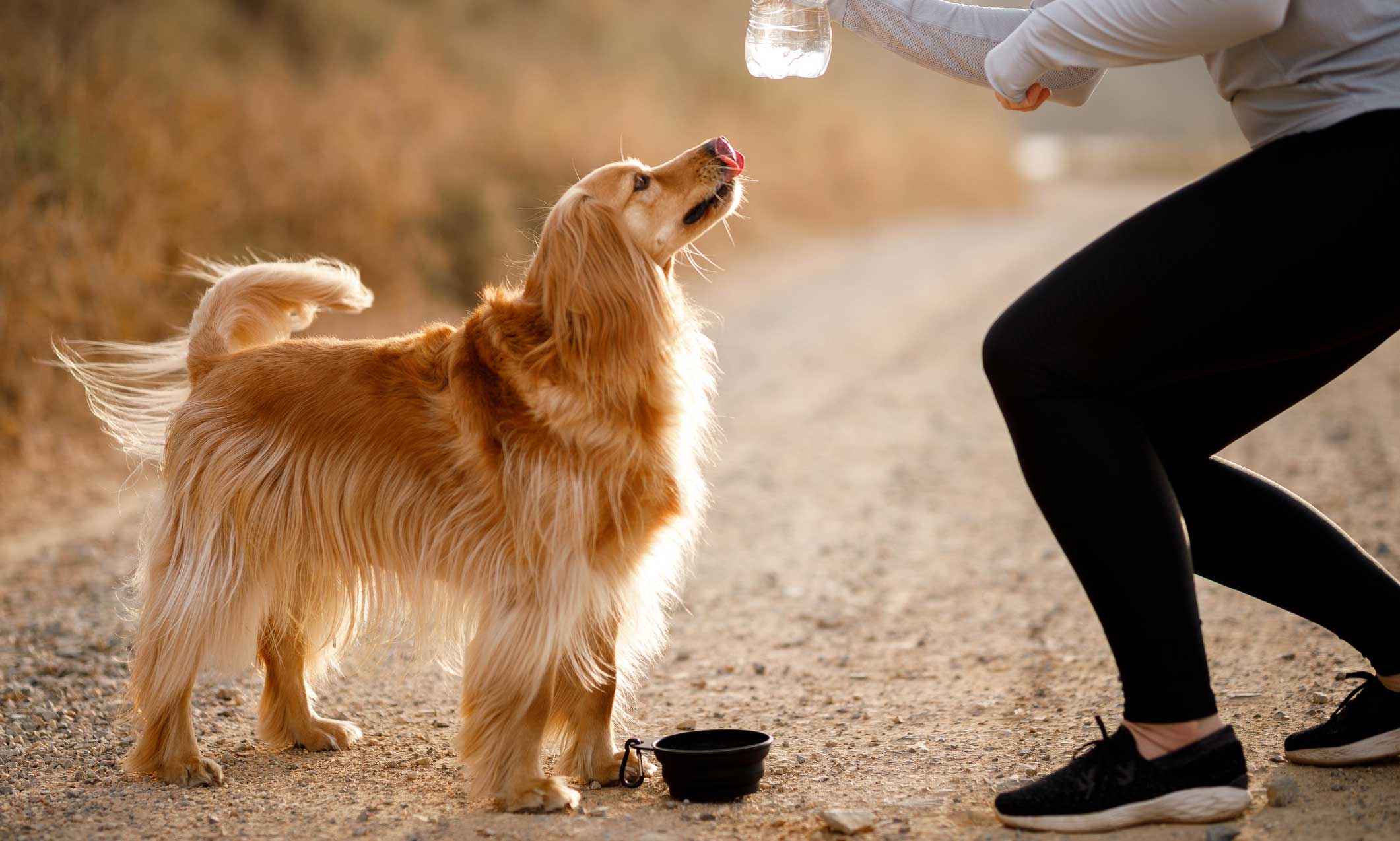
Mild Dehydration
Healthy dogs will generally address mild cases on their own, as long as they have access to clean water. You may not even know it’s an issue.
“It will be difficult for a pet parent to detect mild dehydration,” Dr. Israel explains. “Healthy dogs with mild dehydration will be able to drink water and correct the dehydration without treatment.”
What to do: Keep that water bowl full of fresh water.
Severe Dehydration
A dog who has an existing acute or chronic health problem may not be able to correct dehydration on their own and they will become sicker. This is likely when you will notice because your pet’s health will be visibly affected.
For example, if your dog has diarrhea or persistent vomiting, drinking water is unlikely to solve the problem because they’ll continue to lose fluids as long as they’re still experiencing the persistent vomiting or diarrhea.
What to do: Take your dog to the vet immediately because “dehydration is a dynamic problem and can worsen if not treated,” Dr. Israel says.
Shock
“Severe dehydration, if untreated, can lead to shock,” Dr. Israel says. There are many causes of shock, and dehydration is one of them.
Shock occurs in severe cases when the blood flow in the body drops suddenly. The drop in blood flow leads to a drop in oxygen. In the end, vital organs don’t receive enough blood or oxygen.
Shock is a life-threatening medical emergency. It can result in death.
In addition to the signs of dehydration listed earlier, a dog in shock “will be very weak, sometimes barely or not able to walk, can have cool extremities, high heart rate, increased breathing rate and can have pale or ‘muddy’ colored gums,” he says.
What to do: Head to the emergency vet stat. Emergency care will likely involve intravenous fluids to ensure rehydration and the identification and treatment of the underlying condition that led to the dehydration in the first place.
How to Prevent Dehydration in Dogs
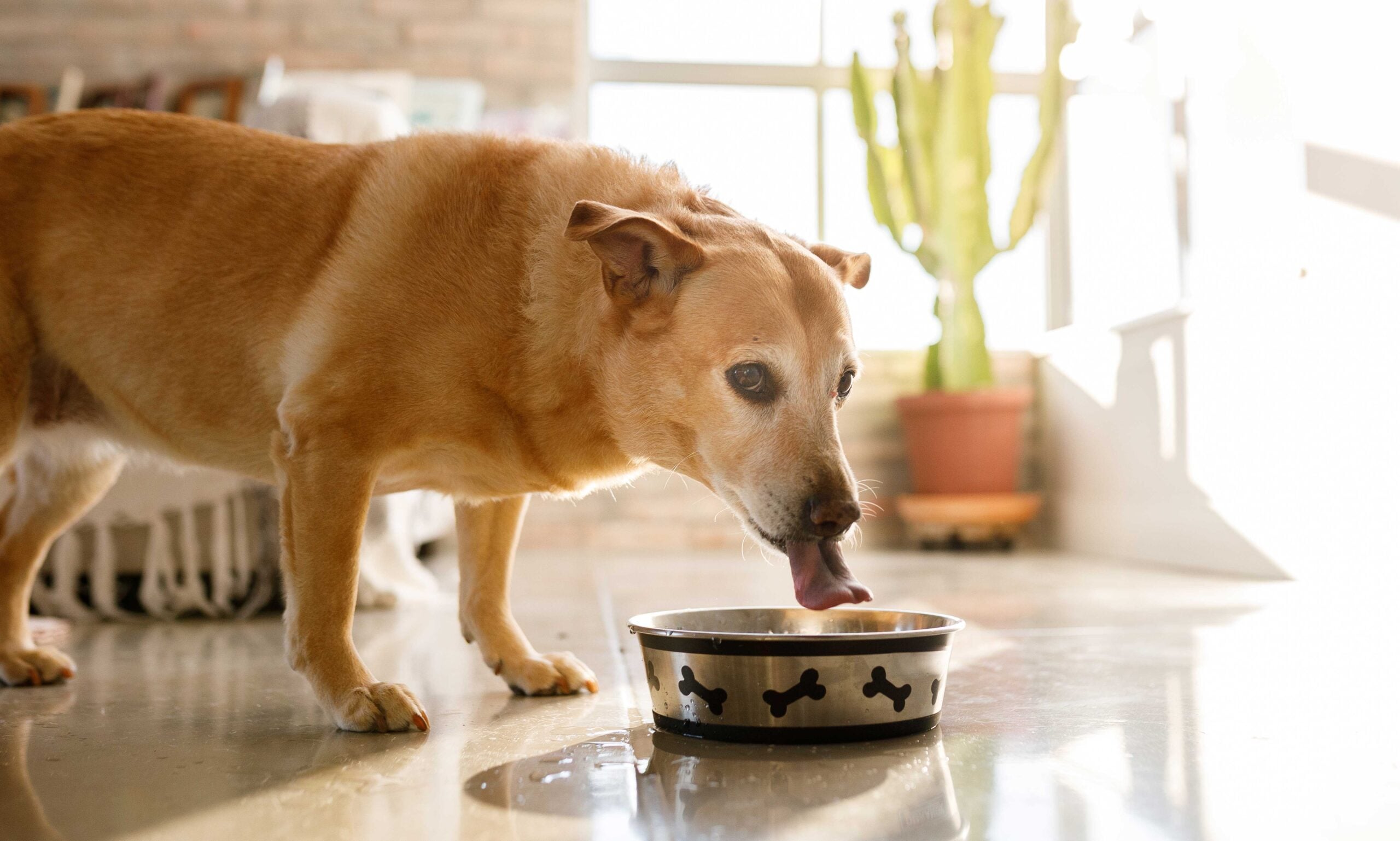
- Ensure access to fresh water: The best way to prevent dehydration in dogs is to make sure your pet always has access to clean water.
- Monitor fluid intake: Do your best to keep tabs on how much water your dog is drinking. A dog’s daily water needs are about one ounce of fluid for each pound of body weight, says Dr. Ahn. For example, a 32-pound dog requires 32 ounces of water per day to meet their physiological needs.
- Key an eye out for excess fluid loss: It’s important to take note when your dog is likely losing water at a higher-than-normal rate, Dr. Israel says. This can happen if they’re experiencing persistent vomiting, diarrhea or increased urination.
- Be mindful of situations that necessitate higher water intake: Dogs require additional water sometimes, Dr. Ahn says. For example, if they’re engaging in heavy exercise or you live in hot environments–like the desert landscape of the southwest United States–their water requirements will be greater. This will also be the case during the warm summer weather.
- Avoid strenuous physical activities during midday when the sun is at its peak and the temperatures outside are at their highest. In general, limit time spent outside in hot weather.
- Offer healthy hydrating “treats”: With your veterinarian’s OK, you can offer your dog celery or carrots, Dr. Ahn says. They contain a significant amount of water. (Just be sure to discuss any dietary changes with your vet and to always introduce new foods gradually.)
- Add water to their kibble: Again, with your vet’s OK, you may also want to consider adding water to their kibble or feeding them wet food during high-heat months/days.
One simple way to help prevent dehydration from heat or activity when you’re on-the-go is to give your dog lots of water! Consider these portable options to ensure you can always offer fresh water:
The 4-1-1 on Dehydration in Puppies
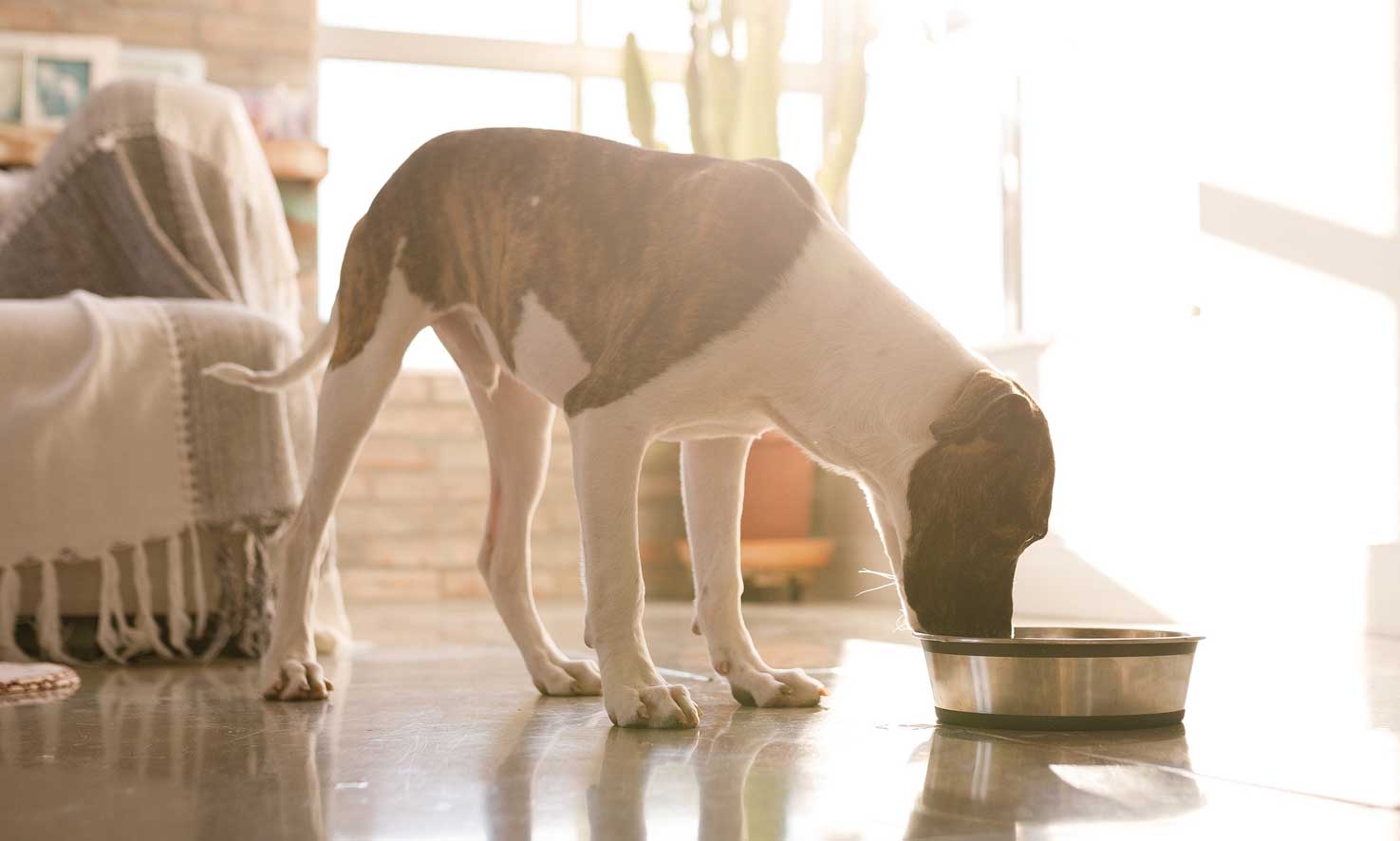
Causes of Dehydration in Puppies
Though puppies can become dehydrated for the same reasons as older dogs—including lack of water, heavy exercise and hot climate—puppies are at risk for dehydration for additional reasons, says Dr. Ann Hohenhaus, DVM, DACVIM, staff doctor at NYC’s Animal Medical Center (AMC).
The following are some of the more common causes of dehydration in puppies because these issues often lead to vomiting and/or diarrhea:
- Parvovirus
- Intestinal parasites
- Foreign objects stuck in the intestinal tract
Signs of Dehydration in Puppies
Puppies have some of the same symptoms of dehydration as more mature dogs, but it’s helpful to know exactly what you’re looking for if you’re concerned about your young dog.
Here are some signs of dehydration in a puppy:
- Tent test: Veterinarians assess puppies for dehydration by doing the tent test to check for a loss of elasticity, as described earlier.
- Gums and eyes: "Moist, shiny gums and eyes indicate good hydration. Dry, dull eyes or sticky gums indicate dehydration,” Dr. Hohenhaus explains.
What To Do for a Dehydrated Puppy
Puppies typically require more urgent care if you suspect they’re dehydrated. That's both because of the more serious potential causes of dehydration and the fact that puppies are naturally more fragile compared to adult dogs.
“I am less worried about dehydration and more worried about the underlying cause of dehydration, which can be lethal if not treated,” Dr. Hohenhaus says. She suggests doing the following:
- Seeing your vet as soon as possible if your puppy is experiencing persistent vomiting and/or diarrhea; or
- Going straight to the emergency vet if your puppy is experiencing bloody diarrhea, cannot keep food or water down, or is extremely lethargic.
Dr. Hohenhaus adds the vet may run laboratory tests to help assess the situation. “If protein in the liquid part of the blood or the level of red blood cells is higher than normal, it indicates inadequate ‘water’ in the bloodstream,” she explains.
Even if the issue ends up simply being thirst or a mild case of dehydration, puppies will benefit from immediate, professional intervention. The sooner your dehydrated puppy is with a veterinarian, the higher their chances for a full recovery.
Preventing Puppy Dehydration
Below are some ways you can ensure your puppy stays healthy and hydrated:
- Have a water bowl available and provide access to clean, fresh water for drinking. This holds true at the beach, lake and pool, when they are especially tempted by other water sources.
- Make sure your puppy is up to date on all their vaccines and booster shots. If they’re not, schedule their appointments and refrain from letting them outside or around other dogs or puppies.
- Provide shade when your puppy is outdoors so they can stay cool.
- Avoid peak hours of sunshine and keep outside visits short when temperatures exceed 90 degrees.
- Do not ever allow your puppy to be in an enclosed car with the A/C off.
- Seek veterinary care for vomiting and diarrhea before dehydration becomes an issue.
FAQs About Dehydration in Dogs
Q:
How are heatstroke and dehydration related?
Q:
I read that dehydration can cause an electrolyte imbalance. Why is this a problem?
A:“The most important electrolyte in dehydration is sodium. If an animal becomes severely dehydrated their sodium can rise, and if this is corrected too quickly, it can cause neurological problems, which can be life threatening.
Also, electrolyte disturbances can also cause problems with many functions of the body, including muscle use, breathing and others.”
Q:
If my dog shows signs of impaired muscle function, could this be due to dehydration?
Q:
I understand that dehydration can “damage” my dog’s kidneys, but does that mean it can cause actual kidney failure?
Expert input provided by: Dr. Albert Ahn, DVM, strategic advisor for MYOS, a senior pet healthcare company in Cedar Knolls, New Jersey; Ann Hohenhaus, DVM, staff doctor at NYC’s Animal Medical Center (AMC); and Dr. David Israel, DVM, Medical Director at Veterinary Emergency Group in Boulder, Colorado.
Additional reporting by Wendy Rose Gould.
More ways to keep your dog safe and cool this summer:
Share:
